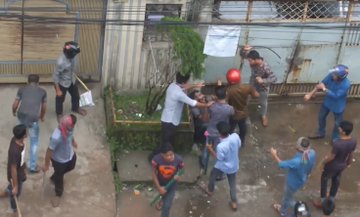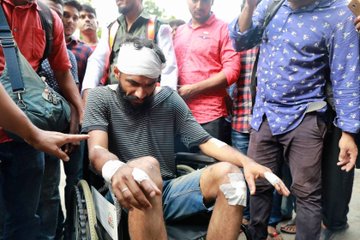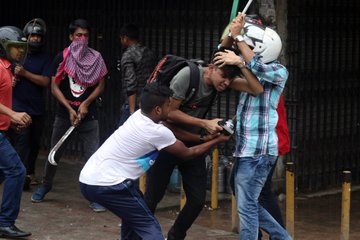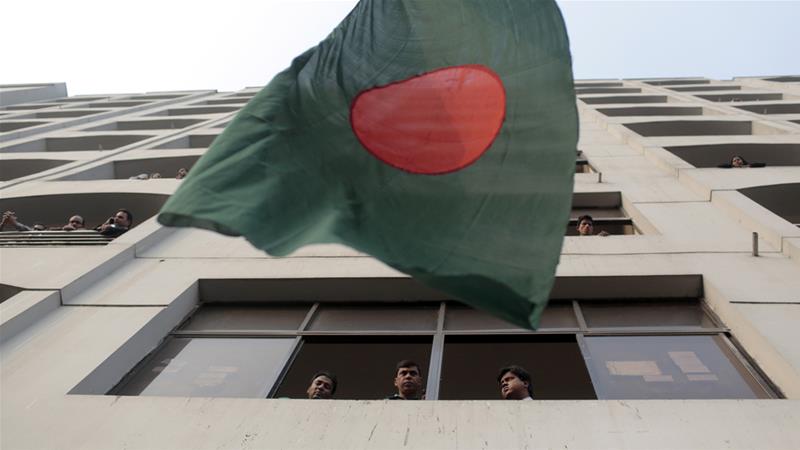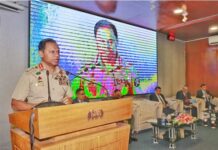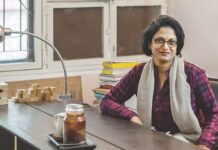Published on Aug 5, 2018
Protesters injured as Bangladesh police fire tear gas on students
Police again fire tear gas at students as government cuts internet access amid escalating demonstrations.
Violent clashes have continued in Bangladesh‘s capital as authorities fired tear gas at students and shut down mobile internet connections after a week of youth protests over road safety following the death of two teenagers who were mowed down by a speeding bus.
Thousands of students from various schools and colleges on Sunday started controlling traffic in Dhaka, for the eighth consecutive day.
Bangladeshi police fired tear gas at students occupying an intersection in central Dhaka.
“It was a peaceful rally but suddenly police fired tear gas shells aimed at us [that] left several injured,” Mohammad Atikur Rahman, one of the protesters, told dpa news agency.
A number of journalists were also beaten and had their cameras taken away, reportedly by ruling Awami League party members.
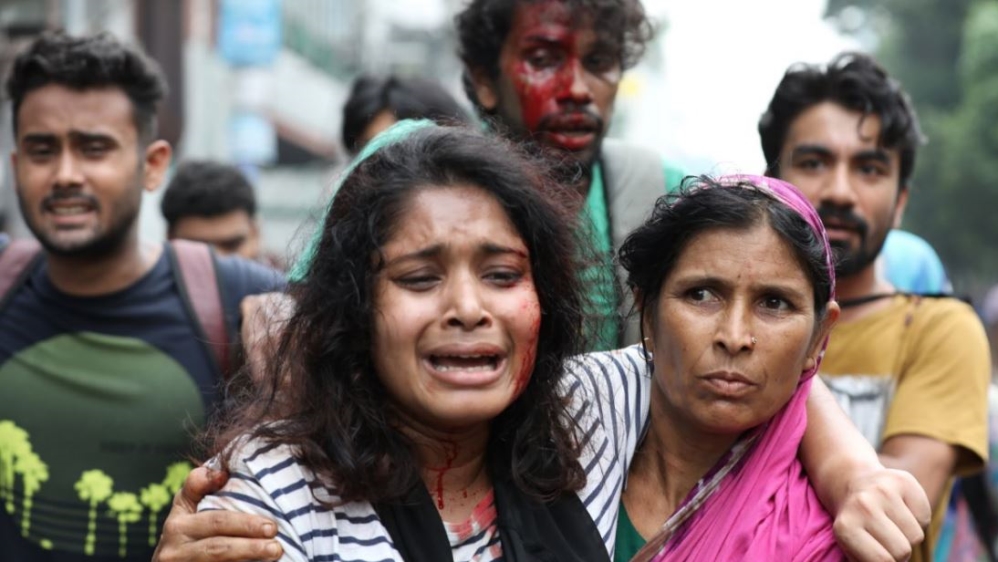 |
| Wounded protesters in Bangladesh’s capital, Dhaka [Mahmud Hossain Opu/Al Jazeera] |
Dozens of protesters were attacked by people alleged to be ruling party activists, some armed with machetes, in Dhaka’s Dhanmondi neighbourhood.
“The pro-government students attacked,” Hasan, a young protester, said.
“Then we broke the locks of a building and around 50 boys and girls took shelter there. And now the journalists helped us to leave the place. The police fired tear gas and used batons. The pro-government students also attacked and roughed up the girls,” he added.
Al Jazeera’s Tanvir Chowdhury, reporting from Dhaka, said “there were clashes in different parts of the city”, during which students were injured.
He added that the journalists’ community raised “major concerns” following the beating of several of its members over the past two days.
“This will be a major concern for covering any event in coming days,” he said.
Telecommunications companies were ordered to suspend 3G and 4G services for a period of 24 hours on late Saturday, the English-language Dhaka Tribune reported. Jahirul Haq, chairman of the Bangladesh Telecommunications Regulatory Commission, told AFP news agency regulators received an order from the government, but did not give further details.
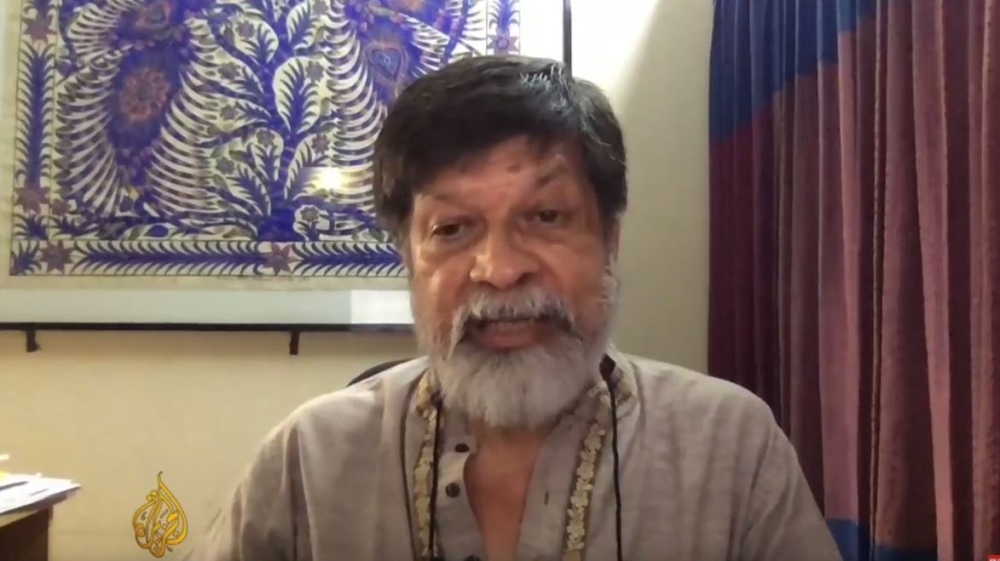 |
| Shahidul Alam speaking to Al Jazeera from his home in Dhaka before his arrest [Al Jazeera] |
Social activist arrested
The restrictions were rolled out after thousands of students took to the streets in recent days to protest against poor road safety following the killing of Diya Khanam Mim and Abdul Karim Rajib by the speeding bus a week ago.
Demonstrators stopped motorists in Dhaka and in other parts of the country to check licenses and registrations, causing significant traffic disruptions.
Shahidul Alam, a renowned photographer and social activist, told Al Jazeera from Dhaka the protests were driven by “larger” factors than road safety alone.
He highlighted “the looting of the banks, the gaggling of the media, the extrajudicial killings, disappearings, bribery and corruption”.
“Today the police specifically asked for help from armed goons to combat unarmed students demanding safe roads,” said Alam.
“The government has miscalculated. It thought that fear and repression would be enough but you cannot tame an entire nation in this manner.”
Following the interview with Al Jazeera, Alam was detained by police in Dhaka, local media reported.
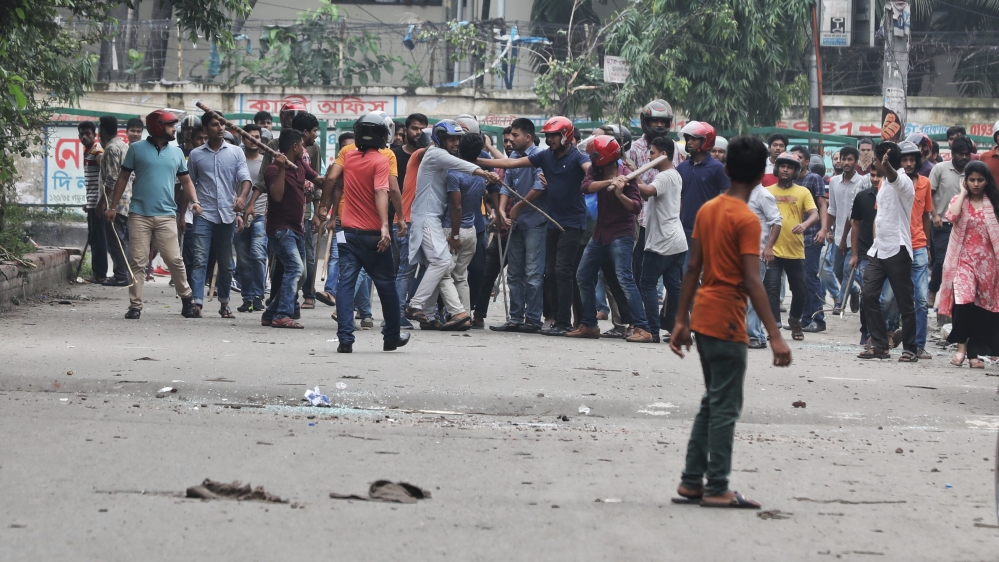 |
| Violent clashes continued in Dhaka [Mahmud Hossain Opu/Al Jazeera] |
Government warning
On Sunday, Prime Minister Sheikh Hasina called on students to return home after police reportedly fired tear gas at a crowd gathered in front of the Awami League’s office in Dhaka’s Jigatala neighbourhood.
She warned that a “third party” could sabotage the protests and put the safety of demonstrators at risk.
“That’s why I request all guardians and parents to keep their children at home. Whatever they have done is enough,” the prime minister said from her office.
“Our police force has started a week-long drive to bring discipline on the roads.”
A day earlier, witnesses reported seeing police fire rubber bullets and tear gas at demonstrators gathered in Jigatala. Police denied the allegations.
The Awami League also refuted accusations that its members attacked protesters.
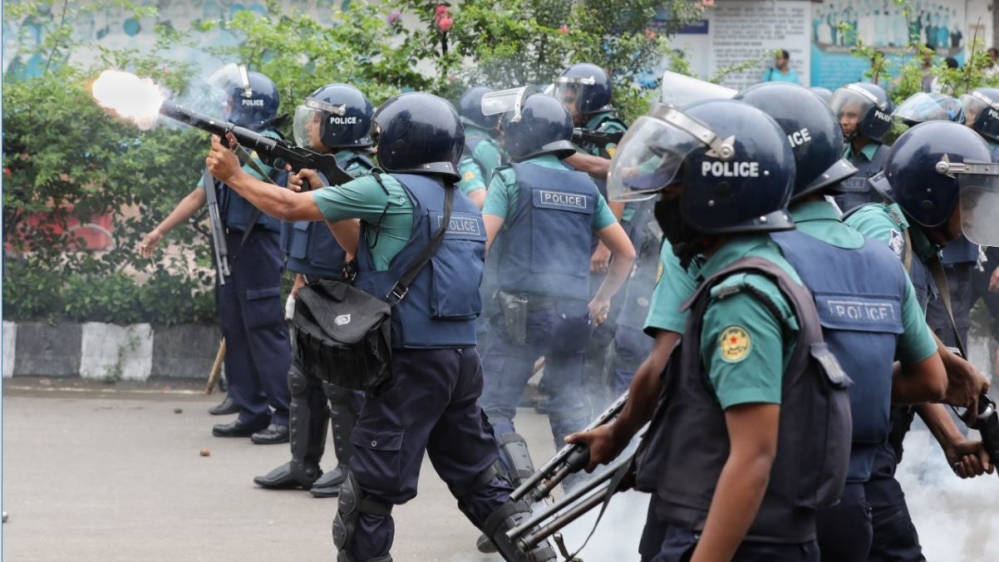 |
| Police in Dhaka fired tear gas on protesters [Mahmud Hossain Opu/Al Jazeera] |
More than 4,200 people were killed in road accidents throughout Bangladesh last year, a 25 percent increase from 2016, according to private research group the National Committee to Protect Shipping, Roads and Railways.
Meanwhile, Bangladesh’s Home Minister Asaduzzaman Khan issued a stern warning to anyone considered to have crossed the line.
“Law enforcers are showing patience. It does not mean that they will keep crossing the limit and we will sit idle and watch. We will go for tough action if the limit is crossed,” he said.
Al Jazeera’s Chowdhury said what started as a social movement against traffic safety was now “taking more and more of a political dimension”.
The United Nations said it was worried for the safety of the children and young people caught up in the protests.
“We are deeply concerned about the reports of violence and call on all for calm,” the UN resident coordinator in Bangladesh Mia Seppo said.
“The concerns expressed by youth about road safety are legitimate and a solution is needed for a mega city like Dhaka,” she said in a statement.

